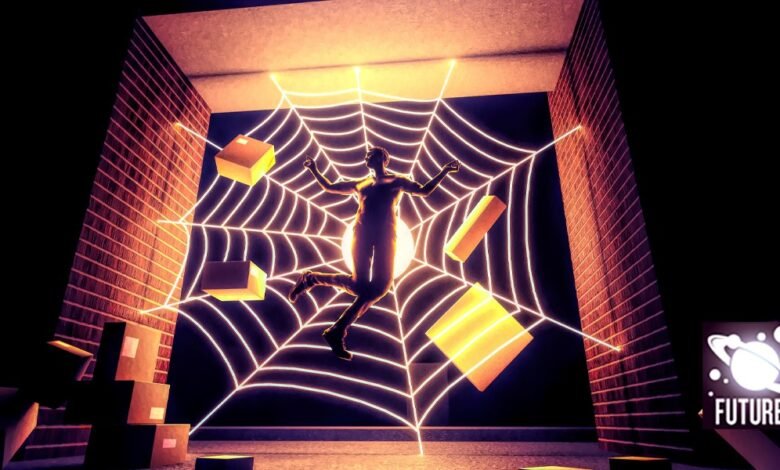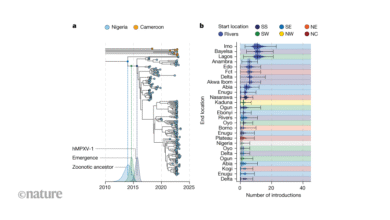How much would you pay for free shipping?

They’re so quiet when they crawl down the street. But you still know. Some forgotten sense, some warning unneeded for millennia, starts to tingle.
A one-tonne MakeBelieve.com spider crawls down my street, with a purposeful look in its eyes. Egg-shaped parcels of various sizes are glued to its back with spider silk.
At first, when MakeBelieve.com decided to use genetically modified spiders to deliver their packages, people were uncertain. Did we really want truck-sized arachnids prowling our streets with intent in their eyes, seeking us out?
Sure, they’d been successful as warehouse workers. All those legs! But did we need these gargantuan predators in our lives?
The remnants of last night’s nightmare still clings to my mind. I’d dreamt they’d released a batch of gynandromorph spiders with both male and female characteristics. And these gynandromorphs mated. London became an arachnid colony: tube trains bursting through the cobwebbed tunnels; giant spiders nesting in the House of Lords and crawling up Big Ben’s tower. Everywhere you looked, there were clusters of eggs, hatchlings, aggressive juveniles and hungry adults. And we were the flies.
They say it can’t happen. They say all delivery spiders are 100% male.
Pray that they never make a mistake in the spider labs.
I worry that spider tech wasn’t properly tested. I signed petitions. I made my objections known.
Read more science fiction from Nature Futures
Yet the spiders were still developed. The spiders roam our streets. I wonder what will happen in the future.
The spider pauses outside my house. I find myself urging it to move on. I’m not expecting anything. I haven’t braced myself.
Just how intelligent are they? Their brains must be at least a thousand times bigger than those of a house spider. Are they a thousand times more intelligent?
Spiders are patient. Are they just waiting until the time is right?
I breathe a sigh of relief as the spider moves on and makes its way down next door’s path. The Perkinses order a lot from MakeBelieve.com. Not that I’m watching. I twitch the curtains back into place. The spider stops moving. Three of its outer eyes swivel to my window.
A moment and a moment and a moment. Fear wraps its cocoon around me, until, eventually, the spider continues to crawl down the Perkins’ path to the parcel bay. And I continue to watch it. I wonder if it can see me through the white veil of net curtain. They see slowly, but they see a lot.
In the past few years, I’ve learnt a lot about spiders.
There were calls to wait. Surely, it would be better to test an unknown technology rigorously? Surely, it was better to err on the side of caution when it came to licensing? Surely, we couldn’t afford to allow the Big Concentration Companies to set their own safety limits? To self-report on the risks?
Perhaps our governments would like to get involved?
The Big Concentration were too keen, too competitive to get the first spiders into production. Our governments, although they expressed concern, and entered into consultations, were ultimately too weak or too unwilling to exert any control.
The Big Concentration Companies do whatever they want.
The spider raises one segmented hairy leg, sweeping it over the parcels. I imagine the powerful, silent pressure of the movement. The bristles between its claw read the barcodes with some unknown arachnid sense.
When it finds the right parcel, it uses a dab of silk from a modified spinneret to attach the parcel to its claw.
It will be the right parcel. I’ve never seen one put a foot wrong.
The spider flicks the parcel through the air. It lands neatly in the gelatinous receiving pouch outside the Perkins’ door.
As a reward for the delivery, the spider is allowed to feed. It lowers its head to the receiving pouch and grinds a small amount of the gelatinous gloop.
MakeBelieve.com spiders were developed from a 90% herbivorous jumping spider. It’s the other 10% that worries me.
The spider injects digestive enzymes and waits before sieving the nutritious gloop through its mouth parts. Spiders have very thin stomachs. Those memes about a spider eating you whole are ridiculous. They’d have to dissolve you first.
I fear the spiders. And yet, from time to time, just like everyone else, I use them.
The spiralling inflation rates made the minimum wage unaffordable, or so the Big Concentration told us. The worldwide cost-of-living crisis meant that we needed the knock-down prices on MakeBelieve.com.
We like to blame the Big Concentration Companies. We like to blame our weak governments. But ultimately, we know who is to blame.
We want all the things. So, bring on the giant spiders. We can have everything: free shipping, free within-the-hour delivery, any amount of throw-away, one-use plastic, semi-toxic gewgaw. We can have anything they tell us we should want, all at a knockdown price. It shouldn’t cost the Earth.
We can drain the resources of our world almost dry and live in the surety that the next scientific innovation will save us. More and more and more.
The spider is gone. The Perkins children emerge from their house, rip up the packaging and laugh as they see their new acquisitions: MakeBelieve.com spider fancy-dress costumes.
I feel the familiar tingle: another spider is crawling down the street.
Bringing more delights for us to consume, as we embrace the company’s motto: Oh, What A Wonderful Capitalist Web We Weave When First We Start To MakeBelieve.com.







